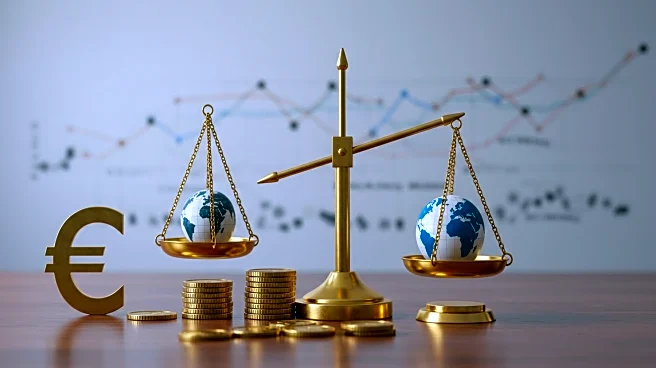What's Happening?
Indian Prime Minister Narendra Modi has announced a proposal to reduce consumption taxes on everyday goods as a strategic response to potential US tariffs. President Trump has threatened to increase import duties on India from 25% to 50% due to India's oil purchases from Russia, which the US claims support Russia's military actions in Ukraine. Modi's tax reform aims to simplify the current four-tier Goods and Services Tax (GST) system into two tiers, potentially reducing tax collections by $13 billion to $17 billion. This move is intended to boost domestic consumption and provide financial relief to Indian households. The proposal, however, requires approval from the GST Council, which has historically struggled to reach consensus.
Why It's Important?
The proposed tax cuts are significant as they aim to mitigate the economic impact of increased US tariffs on India, which could lead to reduced orders and job losses in the Indian export sector. By lowering the tax burden, Modi seeks to stimulate domestic demand and strengthen his political standing among the middle class, especially with upcoming elections in Bihar. The tax reform could also serve as a countermeasure to the strained US-India trade relations, which have reached a low point. If the tariffs are implemented without a trade deal, India's GDP growth could fall below 6%, affecting the broader economic landscape.
What's Next?
The GST Council's decision on the proposed tax cuts will be crucial in determining the immediate economic impact. Meanwhile, the state of US-India trade negotiations remains uncertain, with potential delays in diplomatic visits. India's stance on Russian oil imports will become clearer by late September, which could influence future trade dynamics. The outcome of these developments will shape the economic and political landscape in India, as well as its international trade relations.
Beyond the Headlines
Modi's tax reform proposal highlights the broader challenge of balancing domestic economic needs with international diplomatic pressures. The move underscores the complexities of global trade politics, where economic policies are often influenced by geopolitical considerations. The situation also reflects the ongoing struggle of emerging economies to navigate the pressures of global economic policies while addressing domestic socio-economic challenges.










